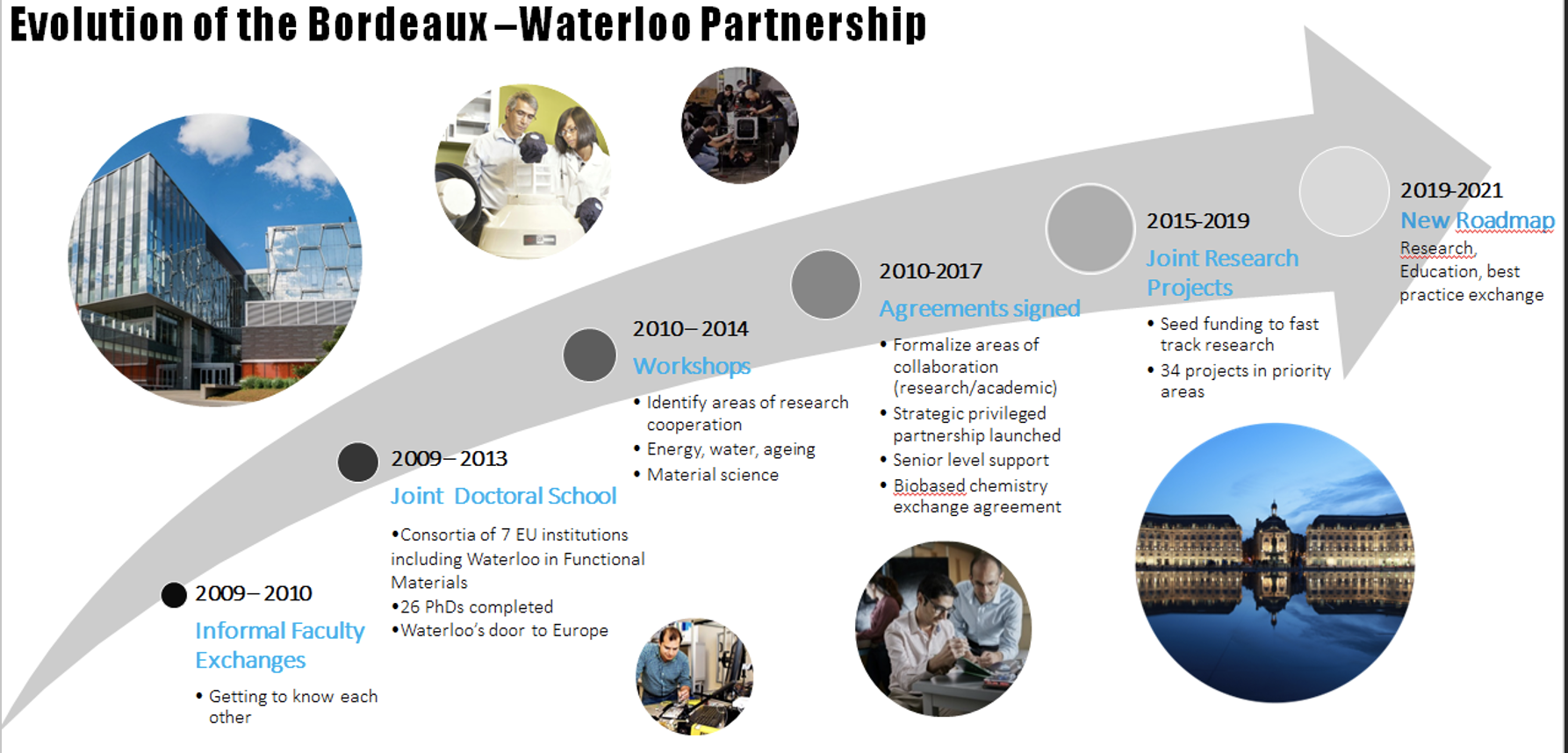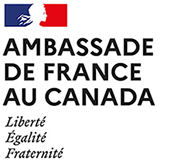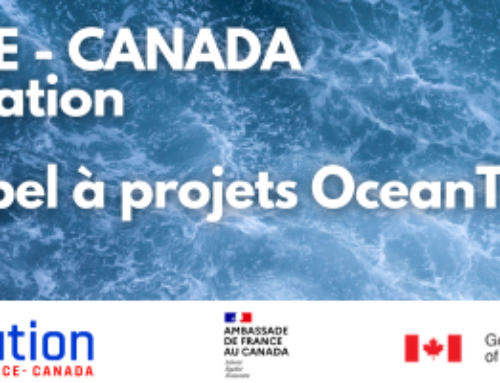The pandemic did not stop the universities of Bordeaux and Waterloo from celebrating ten years of their strategic partnership.
The University of Bordeaux is one of the best research universities in France with eighty-eight research structures, some of which are joint with the CNRS and INRAE. It shares with the University of Waterloo, values such as freedom, creativity, transmission and valorization of knowledge on which it has built its teaching.
Since its creation in 1957, the University of Waterloo has quickly become one of the best Canadian universities in terms of innovation. Its transdisciplinary approach and focus on new challenges in both research and teaching has enabled it to provide recognized expertise, particularly in entrepreneurship support.
Scientific collaboration between both universities has rapidly developed. First materialized by academic exchanges between their faculties, it was a joint workshop organized in May 2014 that fully crystallized the relationship. Hence, multiple projects were born, and significant funds dedicated to their collaboration were released by each of the two universities. Between 2014 and 2019, more than eighty collaborative papers have been published in fields such as material sciences, physics, astronomy and chemistry. The IDS FunMat program has enabled the completion of more than twenty co-supervised PhDs and thirty innovative projects involving researchers from both universities.

Among the great collaborative successes are:
o The development of a new software model and intellectual property.
o A major advance in the understanding of how guanine quadruplex ligands interact with DNA: this project was supported by joint training of students Two other studies derived from the project are also in the process of being completed.
o With their project “Developing a collaborative partnership to examine issues related to community mobility among older adults living in Canada and France,” the researchers Alexander Crizzle and Emmanuel Lagarde have expanded their collaboration to include other projects, such as examining mental trauma after hospital admission, and developing interventions to prevent such mental trauma. They are continuing this line of research with the aim of developing a protocol (and study) for a multi-site intervention study across several countries (including Canada).
The 10-year celebration ceremony and the signing of a new memorandum of understanding was held online in the presence of the presidents of both universities, Feridun Hamdullahpur and Manuel Tunon de Lara, and the two ambassadors of Canada and France, H.E. Isabelle Hudon and Kareen Rispal.

Ambassador Rispal, in her speech, stressed that “this is once again an opportunity to foreground the strong ties between Canada and France in the areas of research, higher education, and innovation”.
The renewal of the strategic international cooperation partnership was highlighted by numerous anecdotes and tributes from students, doctoral students and professors who took part in this collaboration between 2010 and 2020. Participants also had the opportunity to discuss the next strategic directions of their collaboration.
The creation of an “Institute for Societal Benefit” was a common thread during this meeting. Once again, the will to strengthen a common vision of the future of both universities is at the origin of this project. Research will be at the core of this new project in which students from both universities will benefit from joint training and all other initiatives associated with this institute. This project will also strengthen the collaboration beyond the initial complementarities, centered around the fields of materials, energy, health and the environment.
Everyone was delighted with the smooth running of the ceremony and the great future prospects the perpetuation of such a collaboration will generate for both universities.
You can visit their new joint website here:




